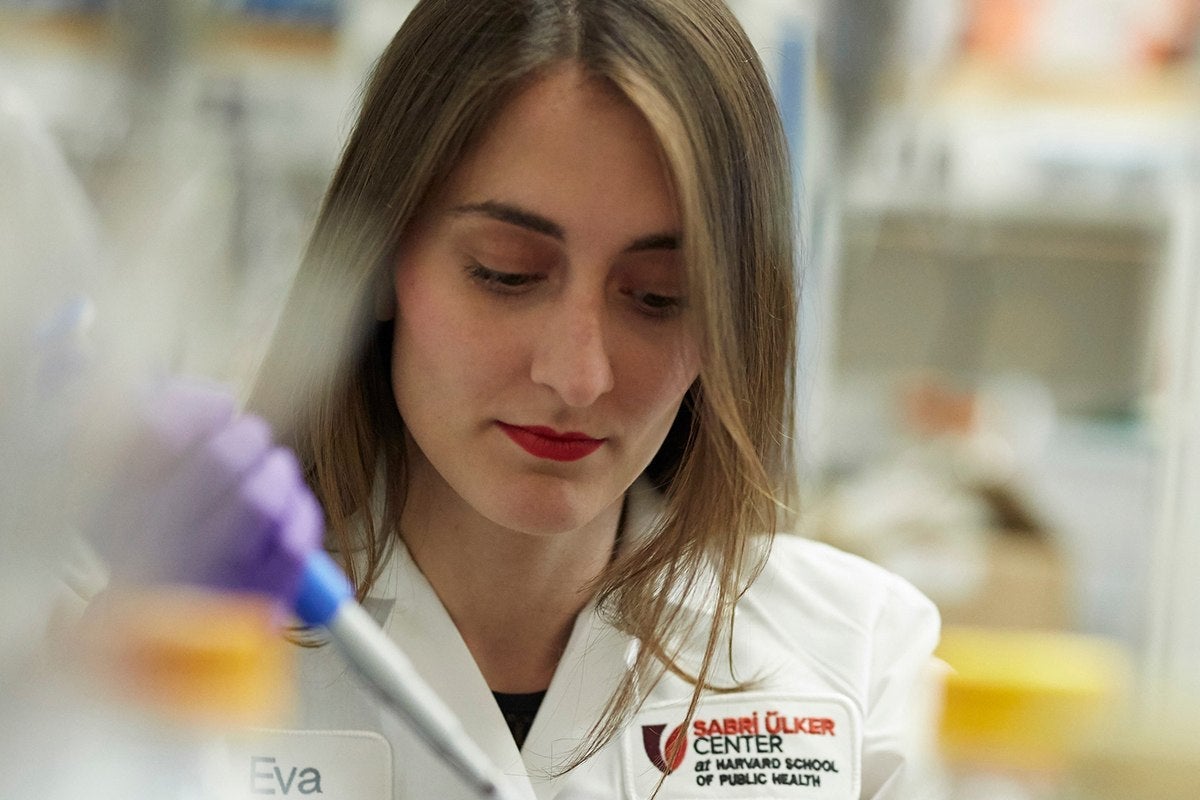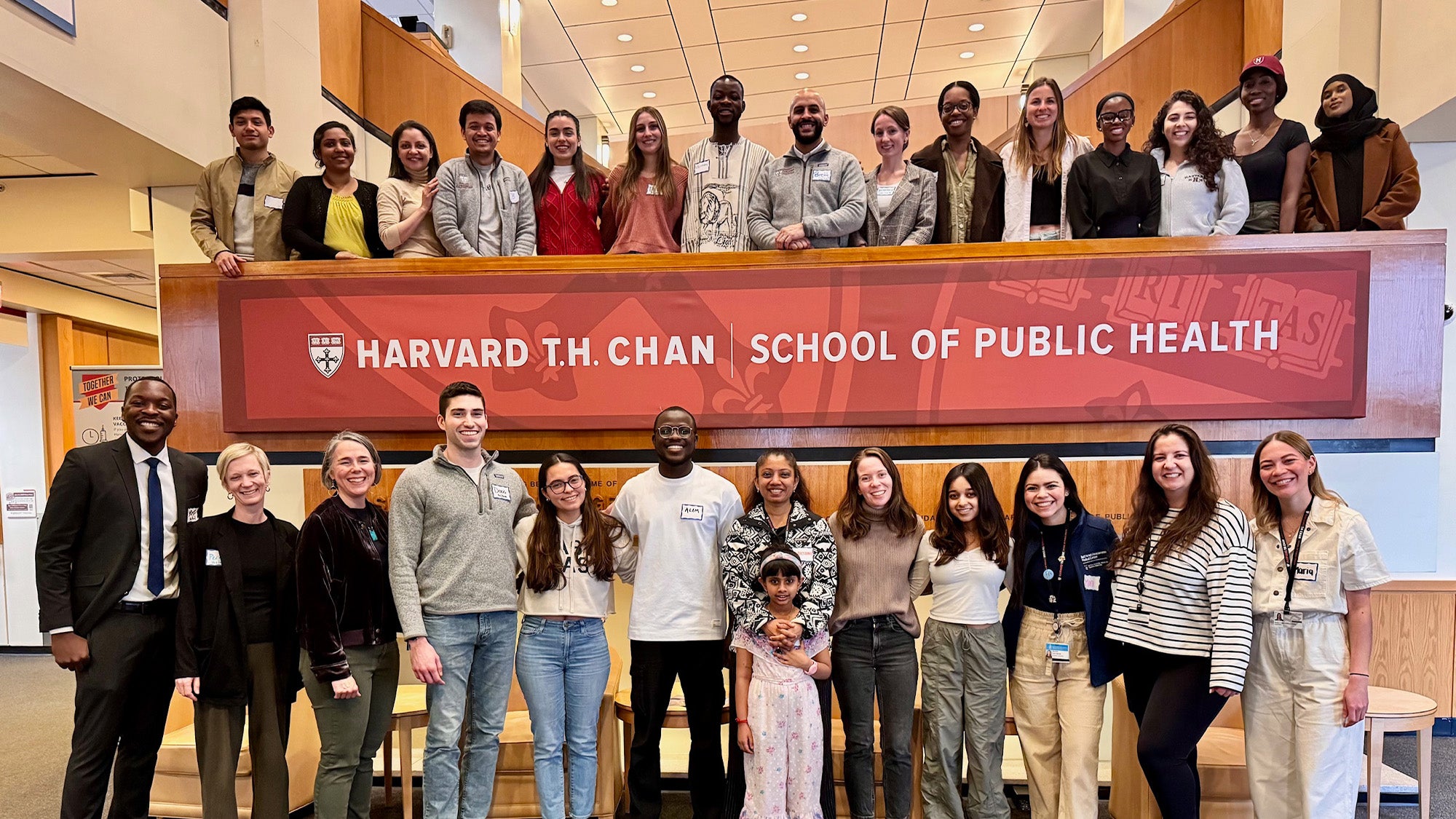Researcher shares love of science with students in Greece

July 10, 2020 – When Eva Tsaousidou was in elementary school, she read something in the newspaper that changed her life—an account of how scientists in Scotland cloned the first-ever mammal, Dolly the sheep.
“This was so fascinating to me,” recalled Tsaousidou, a postdoctoral fellow in the Department of Molecular Metabolism at Harvard T.H. Chan School of Public Health. “It made me want to be part of creating new knowledge in genetics.”
Tsaousidou recently told the story about Dolly to a group of high school students in Greece, her home country, through a platform called “100 Mentors” that connects scientists virtually to students all over the world. She created a profile on the platform in late 2019 and, in early 2020, got a request from Othisi High School in Athens to talk to groups of students.
In online lectures in February and March this year, Tsaousidou told the students about her research into the connections between obesity, metabolism, and cancer. “They found it fascinating,” said Tsaousidou. “They never thought those two things could overlap. But I told them that in biology and in life, everything is connected, like rings of a chain, and if somehow one thing breaks or doesn’t work well, another thing can be affected.”
Tsaousidou said the students were excited to learn about her work, and the school’s newspaper profiled her in June.
“The students don’t have a lot of examples of scientists in their life, so they had lots of big questions,” she said. One of their questions surprised her—they asked if scientists were able to create human babies in the lab.
“I was like, OK, guys—no!” she said. “I told them that wasn’t ethical and that scientists have strict regulations.”
She was also candid with the students about the demands of the job. “The working hours aren’t 9 to 5,” she said, “but I told them it’s very exciting, and every day there is something new and different. And you get a chance to work on things no one has worked on before.”
photo: Kent Dayton


